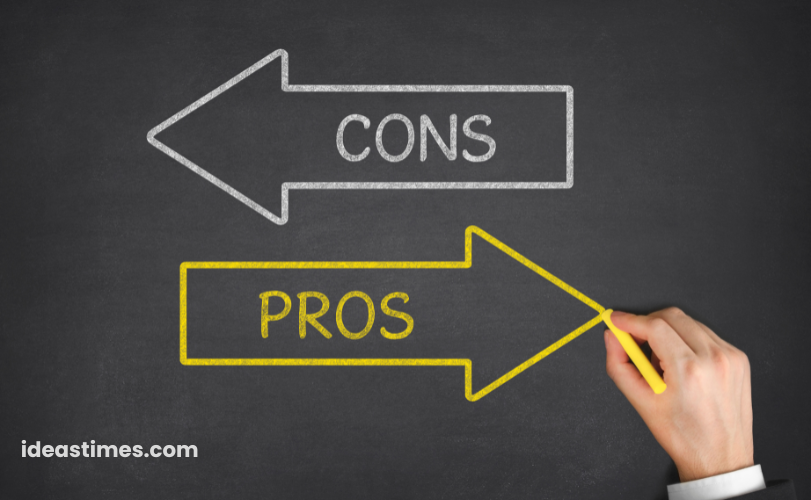In the tech landscape, understanding blockchain pros and cons is essential for anyone looking to adopt this transformative technology. Blockchain technology promises significant benefits but also presents several challenges. Knowing both sides blockchain pros and cons helps in making well-informed decisions about its use.
What is Blockchain Technology?
Blockchain technology is a decentralized digital ledger that records transactions across a network of computers. Each transaction is linked to previous ones, creating a chain of blocks. This structure ensures that once data is recorded, it cannot be altered without changing all subsequent blocks, which requires network consensus. Blockchain supports various applications, including cryptocurrencies like Bitcoin and enterprise solutions such as supply chain management.
Pros of Blockchain Technology
-
Enhanced Security
One of the primary blockchain pros and cons is its superior security. Transactions on a blockchain are encrypted and linked to previous ones, making tampering nearly impossible. For businesses, this means greater protection against fraud and data breaches. The high level of security is a compelling reason to consider blockchain technology.
-
Increased Transparency
Transparency is another significant advantage of blockchain. The technology operates on a public ledger accessible to all network participants. This transparency ensures that all transactions can be verified and traced, which is especially useful in supply chains. By understanding the blockchain pros and cons, businesses can leverage this transparency to improve accountability and trust.
-
Reduced Costs
Blockchain pros and cons also include financial implications. Blockchain technology reduces the need for intermediaries in transactions. Eliminating middlemen can lower transaction costs, particularly in cross-border payments. This cost efficiency is a major benefit for businesses looking to streamline operations and reduce expenses.
-
Improved Efficiency
Another notable blockchain pro is improved efficiency through smart contracts. These self-executing contracts automatically enforce and execute agreements when specific conditions are met. This automation minimizes delays and reduces human error, leading to faster and more efficient transactions. Recognizing this benefit helps businesses optimize their processes.
-
Decentralization
Decentralization is a key feature of blockchain technology. Unlike traditional systems controlled by a central authority, blockchain operates on a distributed network. This decentralization reduces single points of failure, making the system more resilient to attacks and outages. For many, this is a significant advantage of blockchain technology.
Cons of Blockchain Technology
-
Scalability Issues
Despite its benefits, blockchain technology faces scalability challenges. As the volume of transactions grows, the blockchain can become slower and less efficient. Each node in the network must validate every transaction, leading to potential congestion and increased processing times. Understanding these blockchain pros and cons is crucial for businesses that need high transaction throughput.
-
High Energy Consumption
Blockchain cons also include high energy consumption, especially for networks using proof-of-work (PoW) mechanisms. Mining operations require substantial computational power, leading to high electricity use. This environmental impact is a growing concern and a significant drawback of blockchain technology.
-
Regulatory Uncertainty
The regulatory landscape for blockchain is still evolving. Governments are working to establish frameworks for cryptocurrencies and blockchain applications. This regulatory uncertainty can create challenges for businesses, as shifting regulations may affect their operations and compliance requirements. Awareness of blockchain pros and cons helps in navigating these complexities.
-
Complexity
Implementing blockchain technology can be complex and costly. The technology requires specialized knowledge and skills, making integration into existing systems challenging. This complexity can lead to high implementation costs and extended deployment times. Businesses must consider these blockchain cons when evaluating the technology.
-
Data Privacy Concerns
While blockchain offers transparency, it can also pose data privacy issues. Public blockchains expose transaction details to all network participants. This transparency, although beneficial for verification, can be problematic for applications requiring confidentiality. Balancing transparency with privacy is a critical consideration in understanding the blockchain pros and cons.
Why Knowing blockchain Pros and Cons Matters
Understanding both the blockchain pros and cons is crucial for making informed decisions about adopting the technology. By evaluating its benefits and limitations, businesses can determine whether blockchain aligns with their goals and needs. This comprehensive understanding helps in leveraging blockchain effectively while addressing potential challenges.
Conclusion
In summary, blockchain technology offers significant advantages, such as enhanced security, transparency, and cost reduction. However, it also comes with challenges like scalability issues, high energy consumption, and regulatory uncertainty. By thoroughly exploring the blockchain pros and cons, stakeholders can make strategic decisions that maximize the benefits and mitigate the drawbacks. This balanced perspective ensures the effective utilization of blockchain technology to drive innovation and efficiency


